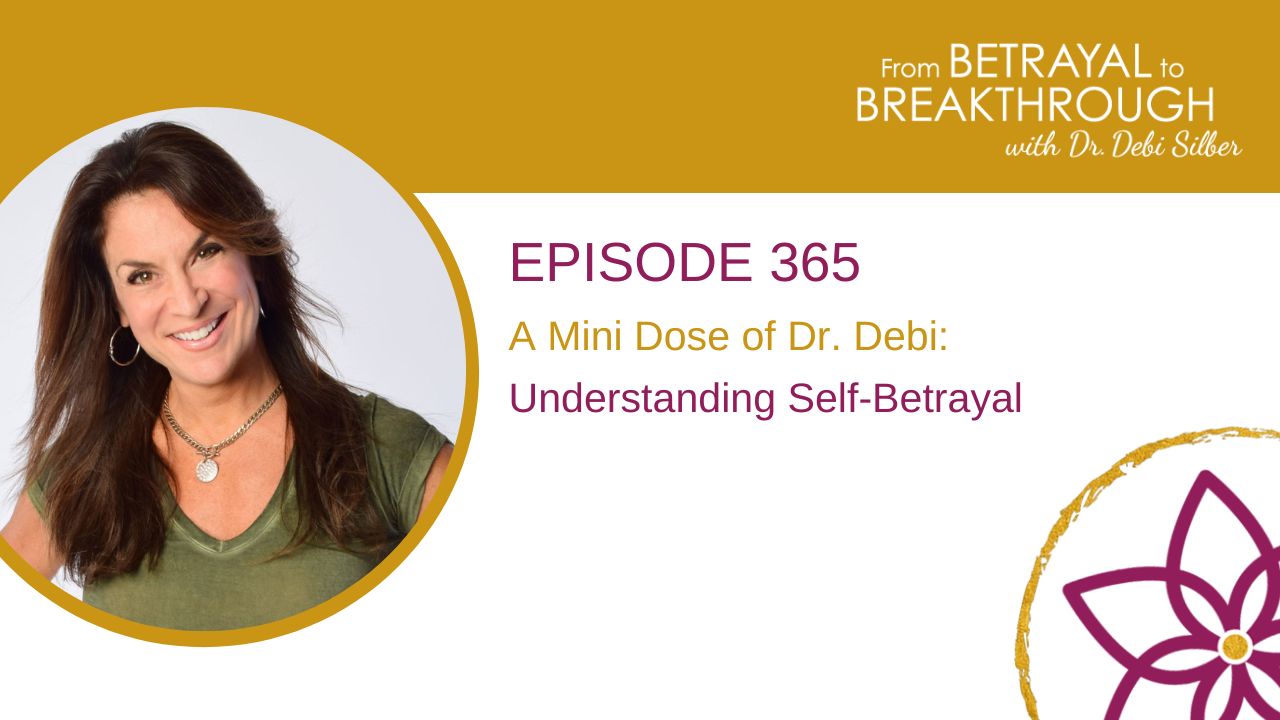
Understanding Self-Betrayal
Welcome to today’s episode where we dive into a nuanced and often overlooked form of betrayal: self-betrayal. This conversation talks about the complex relationship between betrayal by others and the acts of betrayal we commit against ourselves. Our exploration will provide insights into the manifestations of self-betrayal, the underlying reasons behind this behavior, and strategies for fostering self-awareness and healing.
Key Points Discussed:
- The Nature of Self-Betrayal: We begin by defining self-betrayal as the act of going against your best interest, despite knowing better. Examples range from harmful dietary habits to engaging in relationships or activities that lead to negative emotions and outcomes.
Common Examples of Self-Betrayal:
- Continuously consuming unhealthy foods despite being aware of their negative impact.
- Watching content that induces anxiety and fear.
- Maintaining one-sided relationships where there is more taking than giving.
Understanding the ‘Why’ Behind Self-Betrayal: It’s crucial to recognize that self-betrayal is not a reflection of your character but rather a consequence of lacking the necessary tools, strategies, self-esteem or more. This segment aims to shift your perspective from self-blame to understanding and compassion.
The Role of Awareness in Addressing Self-Betrayal: We emphasize the importance of recognizing how you feel after an act of self-betrayal as your personal way to know if this is what you’re doing. This awareness is a critical step towards change.
Personal Stories of Self-Betrayal: Drawing from Dr. Debi’s experience and insights from TEDx talks on Post Betrayal Syndrome® and self-sabotage, we share stories that highlight how self-betrayal can manifest in professional settings, personal development, and daily habits.
The Consequences of Self-Betrayal:
- Emotional and physical tolls of self-sabotaging behaviors.
- The challenge of facing and moving through discomfort and unfamiliar situations.
Strategies for Overcoming Self-Betrayal:
- Identifying and understanding the root causes of self-betrayal.
- Making decisions based on what “stinks less” to foster growth and self-improvement.
- The significance of advancing to Stage Five for clarity and strength.
Final Thoughts: The episode ends with an invitation to reflect on areas of their life where self-betrayal might be occurring. Through journaling and introspection, we encourage identifying actions and mindsets that align more closely with your highest and best self.
Calls to Action:
- Reflect on your own experiences with self-betrayal. How does it manifest in your life? What steps can you take towards healing and self-compassion?
- Share your thoughts and breakthroughs with us. Your journey could inspire others to recognize and address their own patterns of self-betrayal.
Next Episode: Stay tuned for our next episode where we’ll explore the transformative power of vulnerability in personal growth and relationships. Discover how opening up about our struggles can lead to deeper connections and a stronger sense of self.
Thank You for Listening! We hope this discussion on self-betrayal has offered valuable insights and practical advice for navigating this challenging aspect of personal development. Join us next time as we continue to explore pathways to a more authentic and fulfilled life.
Links:
TEDx: Do You Have Post Betrayal Syndrome?
TEDx: Stop Sabotaging Yourself
The PBT Institute: https://thepbtinstitute.com
